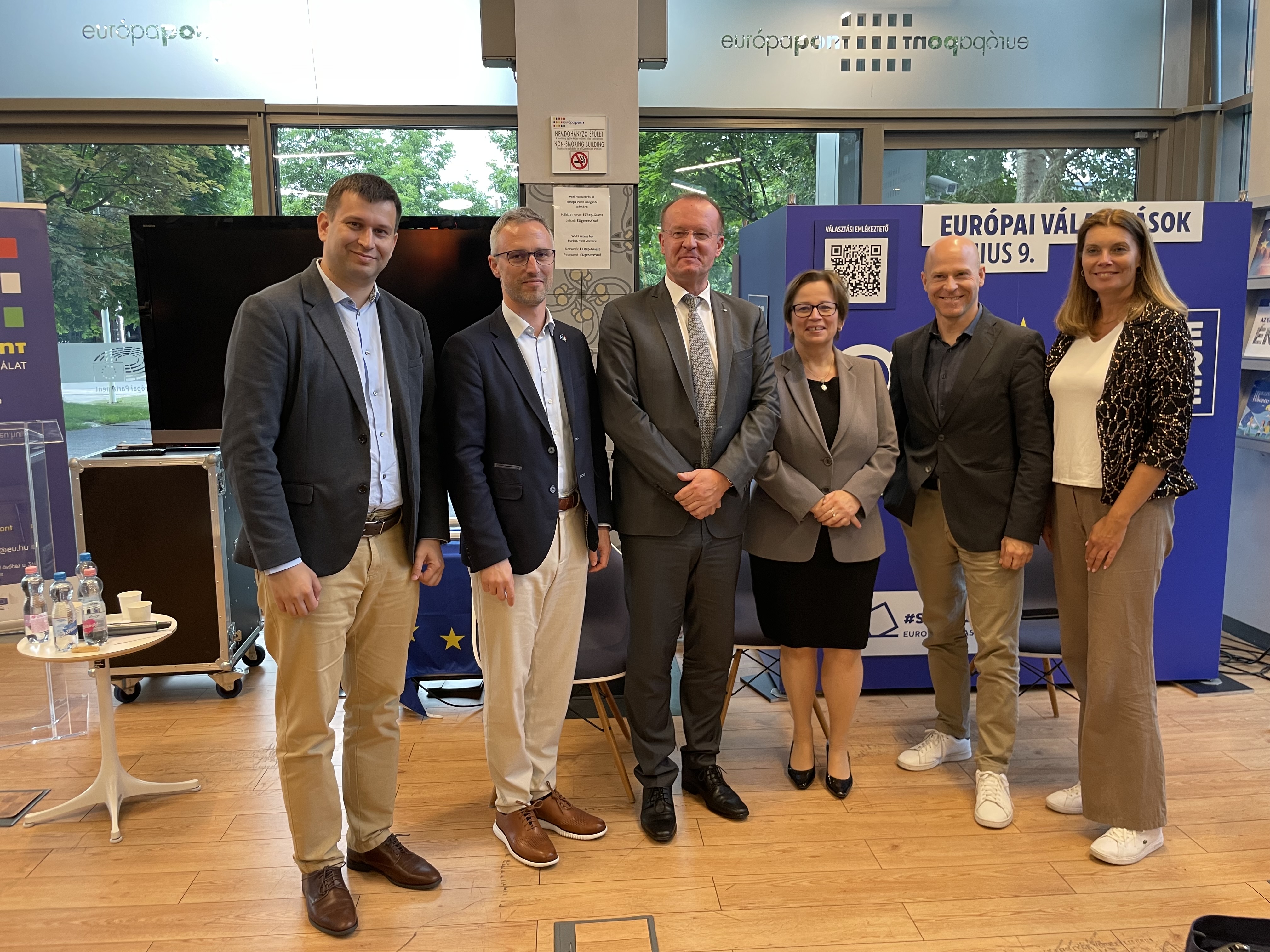
29 Nov European Café: The day after: Is it doom or dawn for Europe?
Event Summary
In 2023 CEID is renewed its European Cafe series of discussions, which focuses on a selected expert discussions on the main dilemmas of Hungarian foreign policy. The discussions are not be open to the press. The aim of the programme is to bring together views in a civilised way and to formulate a minimum foreign policy in the form of concrete proposals.
On June 12th, just three days after the European elections, participants at CEID’s European Café series analysed the results of t he elections and the expectations towards the Hungarian presidency of the Council of the European Union.
he elections and the expectations towards the Hungarian presidency of the Council of the European Union.
The panellists were Peter Hefele, Policy Director of the Martens Center, Botond Feledy, foreign policy expert (CEID), and Paul Schmidt, Secretary General of the Austrian Society for European Politics. The discussion was moderated by Ms Edit Inotai, Senior Fellow of CEID, while the opening remarks were delivered by Ms Andrea Lővei, Head of the European Parliament Liaison Office in Hungary.
A firm conclusion of the discussion was that the right-wing breakthrough that Hungarian Prime Minister Viktor Orban had hoped for did not happen. The far-right won more votes than in 2019, but not enough to dominate policy-making in the European Parliament. There is also a notable fragmentation among the right-wing parties, which makes it difficult to form political groups and cooperate among them. The most favourable outcome for Viktor Orban’s Fidesz party, for example, would be to join the European Conservatives and Reformists (ECR), but there may be other options, such as the creation of a new family of parties in which he could play a leading role.
In line with recent trends of polarisation, it was not only the extreme right but also the extreme left (The Left – GUE/NGL) that gained more seats, although not significantly. On the other hand, the loss of seats of the liberals (Renew Europe) is remarkable. It is also noteworthy that of Hungary’s 21 MEPs. 19 will now sit in the EPP or further to the right.
The panellists also mentioned that the Hungarian Presidency of the Council of the European Union, especially the first months, will probably be marked by the institutional transition of the EU and no major legislative work is expected. It was still unclear whether Hungary would use its presidency to prove that it can be an honest broker to regain some of its lost prestige in the EU, or rather use it as a platform to promote Prime Minister Orbán’s international ideas. The panellists agreed that due to the political animosity and the Article 7 procedure against Hungary, the presidency and the formation of political groups would likely prove to be a challenge for PM Orbán and his party.

